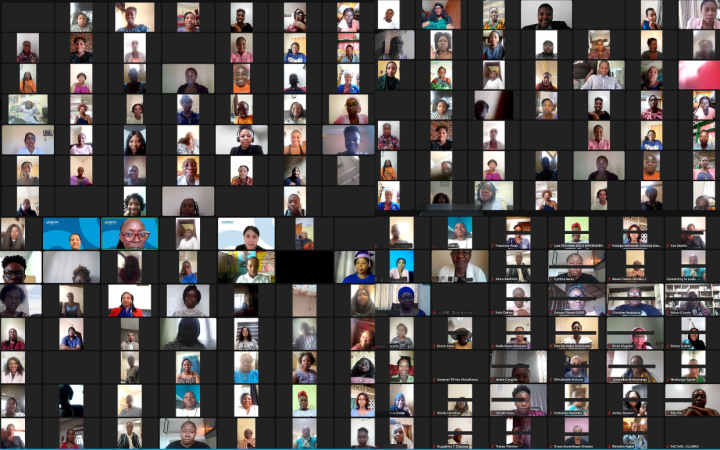In the early days of the pandemic, it was rare to hear of people catching Covid twice. The Omicron variant that emerged in late November has changed that.
As new variants have emerged, and immunity from previous infection and immunisation has reduced, reinfection with Covid-19 is becoming increasingly common. Some people have been infected four times in the past two years.
A study published in March from the South African Centre for Epidemiological Modelling and Analysis found the risk of reinfection has “increased substantially”. This is supported by research from scientists at Imperial College, London that reports the chance of testing positive again is 5.4 times greater with Omicron than Delta.
And now there are several omicron variants circulating around the world, all of which are highly transmissible and very good at overcoming immunity, whether it’s from vaccination, prior infection or both. These omicron variants don’t just evade the protection one may have gained from a non-omicron version of SARS-CoV-2; they make it possible to catch the newer variants of omicron even if the infected person has had the original omicron variant before.
According to a report from July 8, the Australian Health Protection Principal Committee acknowledge that reinfections can occur as early as within 28 days and has adjusted the reinfection period from 12 weeks to 28 days.
Of more concern however, is the theory that reinfections may, in fact, be enhancing the disease, where a misfiring immune response to the first infection exacerbates the second. In dengue fever, for example, antibodies to an initial infection can help dengue viruses of another serotype enter cells, leading to a more severe and sometimes fatal second infection. And in other diseases, the first infection triggers ineffective, non-neutralising antibodies and T cells, hampering a more effective response the second time around.
Repeatedly catching Covid-19 appears to increase the chances that a person will face new and sometimes lasting health problems after their infection.
Dr Ziyad Al-Aly, a clinical epidemiologist and chief of research and development at Veterans Affairs St. Louis Health Care System compared the health records of more than 250,000 people who had tested positive for Covid-19 one time with records from 38,000 others who had two or more documented Covid-19 infections. More than 5.3 million people with no record of a Covid-19 infection were used as the control group.
Among those with reinfections, 36,000 people had two Covid-19 infections, roughly 2,200 had caught Covid-19 three times and 246 had been infected four times. Common new diagnosis after reinfections included chest pain, abnormal heart rhythms, heart attacks, inflammation of the heart muscle or the sac around the heart, heart failure and blood clots. Common lung issues included shortness of breath, low blood oxygen, lung disease and accumulation of fluid around the lungs.
The study found that the risk of a new health problem was highest around the time of a Covid-19 reinfection, but that it also persisted for at least six months. The increased risk was present whether someone had been vaccinated or not, and it was graded – meaning it increased with each subsequent infection.
Al-Aly said there is this idea that if you have had Covid before, your immune system is trained to recognise it and is more equipped to fight it, and if you’re getting it again, maybe it doesn’t affect you that much – but that just isn’t true. What this study shows is that each infection brings new risk, and that risk accumulates over time.
Even when viruses shape shift – as influenza does – our immune system generally retains its memory of how to recognise and fight off some part of them. They may still make us ill, but the idea is that our prior immunity is there to mount some kind of defence and keep us from serious harm. With coronaviruses, and especially SARS-Cov-2 coronaviruses, the hits just keep coming.
Already there’s another omicron subvariant that has caught the attention of virologists: BA.2.75 was first detected in India in early May. Since then, it’s been found in Europe, the United States, New Zealand and Australia. The chief scientist with the World Health Organisation (WHO), Soumya Swaminathan, has said that BA.2.75 appears to have mutated in a way that could indicate “major immune escape” but it’s too soon to know whether it will overtake BA.5 as the dominant variant.
Graham Gordon, Founder and CEO of Gardian, an Australian-based MedTech company that has developed a robust, and verifiable Covid screening program that effectively eliminates Covid ingress onsite said: “We understand pandemic fatigue, but the virus is not done with us.
“Unfortunately, many people are viewing the pandemic as part of the fabric of modern life rather than an urgent health emergency. There is a significant resurgence, and we’re seeing increasing numbers of infections. Clearly this is a global concern.”
Australia is nearing the numbers of Covid hospitalisations and daily deaths it saw during the January peak, but these are just the tip of the iceberg. As Covid hospitalisations increase, it strains other areas of the health system. And beyond the direct suffering of such a massive outbreak, there are likely to be economic disruptions as tens of thousands of people become too sick to work.
“We are already being warned that a new batch of variants could come out of the blue,” said Gordon. “So, if you are at higher risk of serious illness or just want to avoid getting sick, it’s a good time to be wearing a N95 mask in public and using a rapid antigen test that has a low level of detection (LoD) so that you can detect infection prior to becoming infectious.
“The same precautions used to prevent infection over the past two years are as relevant today as they have always been – wearing masks, social distancing, vaccinations, and a robust screening process are still necessary – and they work just as well for avoiding reinfection.”








